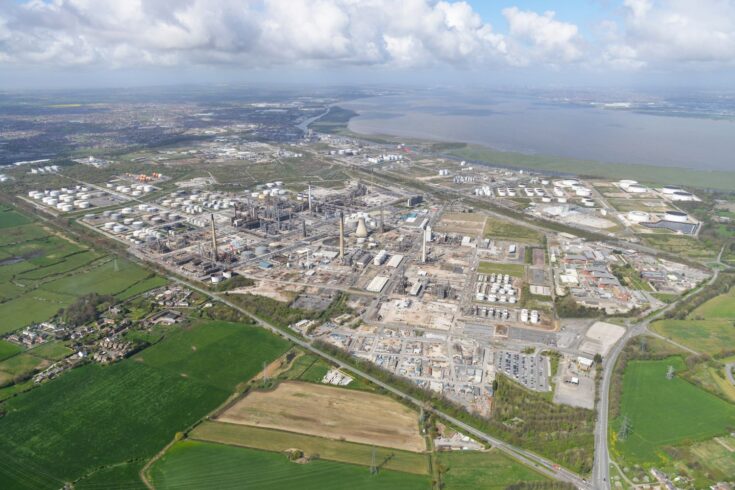The north-west industrial cluster covers a wide geographical area (which is not confined to England, but includes parts of north-east Wales). It has the greatest concentration of advanced manufacturing and chemical production in the UK.
The cluster is home to 3 sites that are among the UK’s 15 biggest emitters of greenhouse gases, and industry as a whole in the north-west produces around 2.6 million tonnes of carbon dioxide (CO2) annually (PDF, 1.6MB).
Developing a roadmap
In developing a detailed roadmap for reducing these emissions to net zero by 2040, the Net Zero North West Cluster Plan has some significant advantages.
The cluster plan project team is made up of representatives from:
- Net Zero North West
- Peel Natural Resources and Energy
- EQUANS
- Uniper
- SP Energy Networks
- Progressive Energy
- Cadent
- Cheshire and Warrington Local Enterprise Partnership
- Liverpool City Region
- North West Business Leadership Team
- University of Chester
Ged Barlow, Net Zero North West Chief Executive said:
One of our strengths lies in the unrivalled number of advanced decarbonisation projects that are already happening on the ground.
UK leading scheme
Among these projects is the UK’s leading scheme involving hydrogen and carbon capture, usage and storage (CCUS), one of only 2 of its kind to be selected for UK government investment to date.
HyNet North West, due to become operational in 2025, involves industries across the region being helped to switch to clean hydrogen as an energy source.
It also involves the widespread capture of CO2 from the north-west’s main emitters: CO2 which is then transported and locked away beneath the sea.
To achieve this, HyNet is repurposing onshore and offshore assets, including existing gas pipelines.
The region also has some important geological assets, including:
- the Hamilton gas field in Liverpool Bay, which has been assessed as being the UK’s most suitable, safe site for permanent storage of CO2
- former salt caverns located in Cheshire
Blueprint for a net zero future
CCUS and hydrogen are likely to feature prominently in the region’s blueprint for a net zero future, and a fledging hydrogen economy is already evident in the region, following HyNet’s success.
Net Zero North West is a partnership of:
- businesses
- researchers
- technical specialists
- public sector organisations
It will recommend the technologies, changes to infrastructure and investment that will be needed for the cluster to reach net zero carbon by 2040.
Modelling scenarios
HyNet is a major feature in the different scenarios that Net Zero North West is modelling.
A great deal of work is also being done to understand other ways in which the north-west can deliver a net zero pathway for industry. Both in terms of natural gas and electricity consumption.
Tidal, solar and nuclear power are also being taken into account in understanding the move to low-carbon industrial electrification.

£206.9 billion investment in the north-west providing social uplift and benefit of over £285 billion gross value added. Develop a total workforce of 660,000 new and existing jobs across the north-west with over 1/2 million in our industrial cluster. Save 38.5 mega-tonnes of greenhouse gas emissions (CO2 equivalent) and deliver the UK’s first net zero region by 2040. Credit: Net Zero North West Cluster Plan
Economic investment
The Net Zero North West Cluster Plan project has already made a detailed investment case.
Its economic investment prospectus, commissioned and paid for by Net Zero North West and its partner organisations, showcases 18 green investment opportunity areas in the north-west.
The prospectus points out some of the region’s strengths, in moving to a net zero future:
- its highly skilled and diverse workforce
- its growing capacity for providing renewable energy
- the presence of a network of highly capable public and private sector partners, as well as researchers, who are all committed to decarbonisation
The vision for the north-west is to:
- reduce CO2 emissions by 38.5 million tonnes
- inject some £285 billion gross value added into the economy
- create or safeguard over 660,000 jobs
Video credit: UK Research and Innovation
On-screen captions and an autogenerated transcript are available on Vimeo.
The Industrial Decarbonisation Challenge is delivered by Innovate UK.
Top image: Credit: Net Zero North West Cluster Plan

